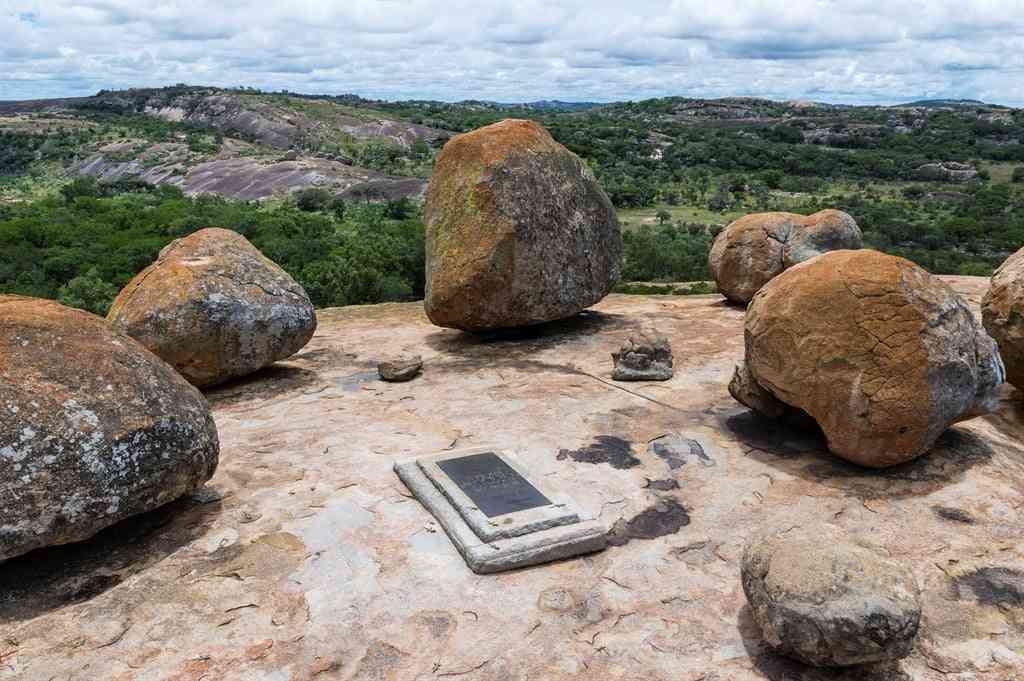
I CANNOT help but wonder why Rhodes’ grave is such a magnet.In fact, this question has perplexed me for some time now.
My confusion then completely transformed to bewilderment following a recent tourism promotion campaign by the government of Zimbabwe.I watched with much intrigue as the Tourism minister, Barbara Rwodzi, hosted a number of visitors at Matobo Hills.
In an interview on the State-controlled broadcaster ZBC-TV, she excitedly touted the breath-taking scenes of the unquestionably gorgeous place. Most outstanding, she proudly narrated, was the grave of Cecil John Rhodes, the British mining magnate and politician who first colonised this country and is entombed at Matobo Hills.In fact, the colonialist went on to name the country after himself: Rhodesia.
What I found quite interesting and completely baffling was how a government that wants everyone to believe that it is fervently “anti-imperialist” is so eager to market Rhodes’ grave.Are they not the same people who love making so much noise about their liberation struggle rhetoric? Are they not the ones who do not tire telling us of having “defeated colonialism” and how this period in our history was unbelievably cruel?
Why, then, were they not directing both domestic and international visitors to the National Heroes Acre in Harare, for instance? In fact, as I pondered over this matter, I actually began to think; maybe tourists are not permitted at the shrine.
After a quick Google search, I discovered that, to the contrary, all one needs is US$10 to tour the graves of our national heroes.So, why was the government of Zimbabwe seemingly not particularly interested in marketing this site?
All my life, quite honestly, I have never come across an advertisement about any of these places that symbolise our independence as a nation, yet Rhodes’ grave is a permanent feature — among such iconic places as Victoria Falls, Hwange National Park, Great Zimbabwe and numerous others.
Then a frightening thought dawned on me.Maybe this is because, deep inside their hearts, those in power in Zimbabwe actually secretly adored Rhodes more than our own liberation icons despite all the hullabaloo and bluster on colonialism and its supposed evils. The ruling elite, in fact, idolise our former colonisers.
- Travelling & touring: Cry my beloved Bulawayo Centenary Park
- Take Rhodes remains to Europe: Mnangagwa
- Village Rhapsody: Zim needs to strengthen local govt to inspire progress
- Travelling & touring: Cry my beloved Bulawayo Centenary Park
Keep Reading
We all know that our leaders are very good at pretending, or at least pretend that they hate colonisation. This is why they are fervently campaigning to have the sanctions removed so that they can freely visit and spoil themselves in the capital cities of our former subjugators.
What has become evident since our ruling elite came into power is that the only thing they obviously loathed about the colonial era, marked by racial segregation, was that they were being excluded from the colonisers’ plush life.
Deep down, they fancied the privileged lifestyle they observed being enjoyed by most of the white people. That is the real reason which motivated the ruling elite who hijacked the people’s struggle to further their own ends.
They also wanted to drink expensive whiskeys and dine in exquisite hotels where they were barred during the colonial era. Their desire was to live in the opulent suburbs that were the preserve of the white population.
Above everything else, nevertheless, was the greed for power — because only whites could govern the country. There was never a genuine desire for the total emancipation of ordinary citizens.
Watching or reading old interviews (from the 1960s and 70s) featuring these so-called “nationalist leaders”, a very disturbing revelation emerges.When asked why they had decided to take up arms against the Rhodesia regime, they would tell of being prohibited from walking along First Street in Harare (then Salisbury). They would express bitterness over using separate toilets (in public places) from white people!
Rarely was the sorrowful predicament of the majority ever mentioned.That is why even today, 43 years after independence, a vast majority of ordinary Zimbabweans still languish in abject poverty and the very land and all its riches they were told they were fighting for is chiefly in the hands of the ruling elite.
In fact, the plight of millions is worse today than during the colonial years because living standards have plummeted to a horrifying abyss after those who hijacked the liberation struggle finally took over power and focused on fulfilling their own ambitions.
Top of their wishlist was looting as much as they could from the national treasure trove to enrich themselves as quickly as possible to probably catch up with the white man.All this while, the majority of Zimbabweans sank deeper and deeper into poverty, while resources are pillaged. The rural population is still trapped in a perpetual cycle of a subsistence livelihood, remaining on the same land since colonial times, with zero title to it and being given food handouts when they are starving or inputs for such programmes as “Pfumvudza” which are apparently designed to restrict them to having just enough for their families to eat.
All this while, those in power own massive tracts of land that were siezed from white commercial farmers — where they are reaping big. It is reported that former President Robert Gabriel Mugabe’s daughter, Bona, actually owns a staggering 21 farms!
In other words, for the privileged few in power, colonialism was, in fact, a good thing. It opened the way for the high, lavish and powerful life they are enjoying with reckless abandon today.So, for what reason should they really despise Rhodes?
He is actually their hero whom they revere and Rhodes’ grave is the place to be?Those in the ruling elite may not openly admit this, but it is a fact.









